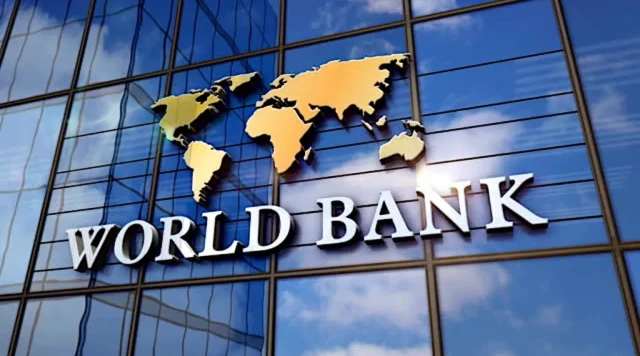The Federal Government and the World Bank have embarked on a new partnership aimed at addressing poverty and enhancing the living conditions of Nigeria’s at-risk populations.
The Independent Media and Policy Initiative (IMPI) criticized former Senate Chief Whip, Mohammed Ndume, for his comments on World Bank loans obtained by President Bola Tinubu's administration, labeling them as a willful distortion of the truth.
Through various social investment initiatives, the global organization is set to allocate $17 billion for poverty alleviation projects in Nigeria.
At a meeting held in Abuja with the Minister of Humanitarian Affairs and Poverty Reduction, Prof. Yilwatda Nentawe, and his Minister of State, Dr. Yusuf Sununu, Ousmane Diagana, World Bank Regional Vice President for Western and Central Africa, revealed this information.
He stated, “This partnership with the World Bank is based on a strategy that enables Nigeria to continue its development by providing quality services to its citizens through job creation and other initiatives.”
In this context, he emphasized that there is a significant program in Nigeria with a commitment of over $17 billion aimed at investing and implementing necessary reforms.
Nentawe mentioned that all participants in the Federal Government's Conditional Cash Transfer initiative would be assigned a digital identity, allowing them to be traced digitally.
He remarked, “This digital identity not only promotes social inclusion but also financial inclusion for hundreds of thousands of Nigerians who previously lacked social and financial recognition.”
In a statement from its Chairman, Dr. Omoniyi Akinsiju, IMPI contended that Ndume’s remarks reflected a limited grasp of the complex nature of developmental issues.
The report concluded: “Our findings indicate that World Bank loans represent nearly 80 percent of Nigeria’s multilateral debt in 2024, showing a modest rise from $21.15 billion in 2023 to $22.32 billion in 2024, marking a 5.5 percent increase, contrary to the $9.5 billion figure cited by Ndume. Meanwhile, Nigeria’s debt to the International Monetary Fund (IMF) dropped significantly from $2.47 billion to $800.23 million (-67.6 percent) during the same period.
This data supports the notion that the Tinubu administration is not recklessly accruing debt but is instead cautiously managing and securing new financing for crucial sectors while decreasing overall public debt.”
The think-tank also refuted Ndume’s assertion that the loans circumvented parliamentary oversight, explaining: “The World Bank’s credit approval process necessitates acceptance by its internal entities (IDA or IBRD) and subsequent agreement by the National Assembly prior to any disbursement.
To clarify, the World Bank approved six projects for Nigeria in 2024, valued at $4.25 billion, but the actual disbursements from 2023 to 2024 amounted to only $2.36 billion, far less than the claimed $9.5 billion.”
After reviewing the World Bank's data on Nigeria’s loans over the past 22 months, the group asserted that the veteran senator lacks sufficient knowledge regarding the country’s debt situation.
Furthermore, the policy organization urged those in power to prioritize accuracy and transparency in their public communications instead of merely seeking to appease the audience.




















